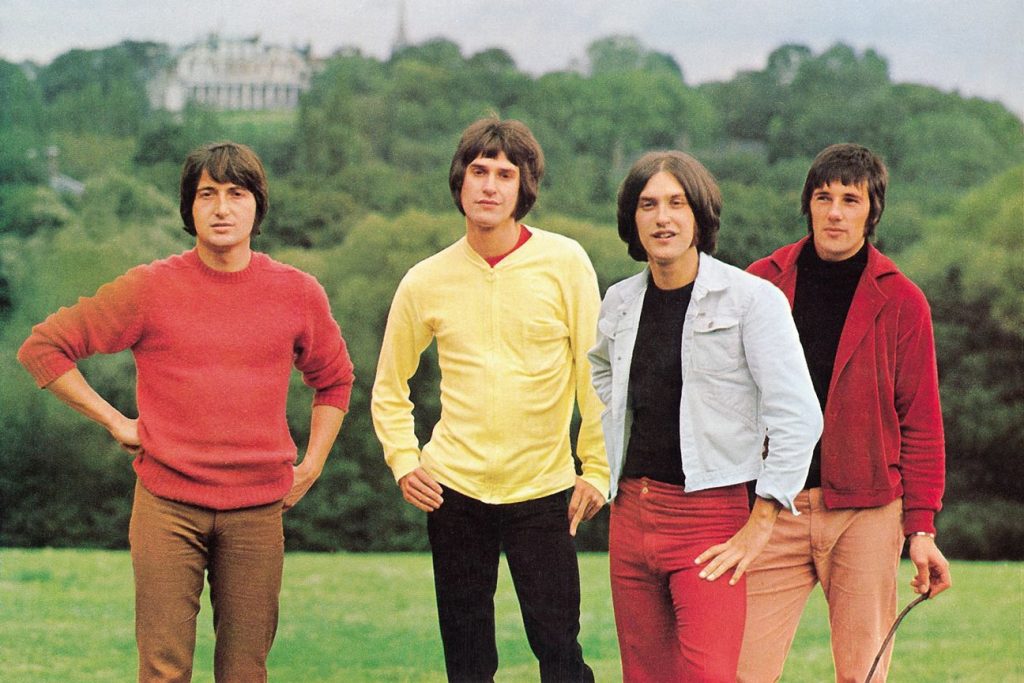
To call an 11-to-17 disc dissection of Ray Davies’ flowery, lit-witty masterpiece “forensic” doesn’t quite say enough about how the quintessentially British outfit’s transformation from frizzled garage rock to vignette-focused art pop is handled. Under the magnifying glass, the first of the Kinks’ albums not produced by Who knob twiddler Shel Talmy—and writer Ray’s first full-length foray into pastoral storytelling about the niceties (and not-so-niceties) of English life and aging—is given new breadth and vigor. It almost can’t help but do so with all that’s remixed and reproduced within the box. The decline of the British Empire and its rich culture, the decline of the body and the mind and the mix of English reserve, stewing anger, regret and nostalgia that follows—all this makes Village Green a haunted, yet lush and charming place to nestle.
Consider first that much of Davies’ initial ire stemmed from who the Kinks were the year previous to 1968. After a handful of early heated hits such as “You Really Got Me” and “All Day And All Of The Night” and the calmer likes of “Lazy Afternoon” and “Waterloo Sunset,” they were among the princes of the British Invasion of the mid-1960s. Prior to Village Green’s release, however, they’d been forbidden from touring in the United States after making trouble for musicians’ union bosses on their first American trek four years earlier. Combine that with Davies falling out of step from the harder, psychedelic sounds that his fellow Brits were making (the Who and the Rolling Stones, mainly) at the time, and Village Green (upon release) was viewed as merely quaint—an extension of that which Noel Coward and George Bernard Shaw had penned before him. “This world is big and wild and half insane,” wrote Davies on “Animal Farm,” produced here in glorious original mono, as well as explosive 2018 stereo mixes. He didn’t mean it with glee.
Wistful for the England of his teen-hood (pre-Absolute Beginners, Colin McInnes’ tome to Britain’s youth quake of the ’50s) and that of his brother Dave (replacing his guttural electric guitars for gentle acoustics here), the two harmonize beautifully, rhapsodizing about the lord above (“Big Sky”), a youth of innocence (“Village Green”) and bucolic spirit (“Sitting By The Riverside”) and the arch characters who surrounded them, such as “Johnny Thunder” and “Wicked Annabella.” Even modes of travel that may or may not speak (“Last Of The Steam-Powered Trains”) get a winsome wink, nod and soulful melodicism in accordance with Davies’ new old outlook.
What happens here, then, with the various Village Green packages, is contextual. The addition of non-LP songs as “Days,” “Berkeley Mews” and “Till Death Us Do Part” extend Davies’ sonic and lyrical sensation of yearning melancholy without forgetting that he’s a pop songwriter in the broadest manner. An alternate all-country “Days” is warmer and cozier than a cup of freshly-brewed tea. “Where Did The Spring Go?” is given a vibrancy through its multitude of takes you hadn’t witnessed before.
Along with mono and stereo versions of the original album, there’s a 12-track Swedish edition that somehow was released before the U.K. version, BBC sessions and countless demos and alternate versions that shed new light on the 1968 studio’s proceedings—such as a take on “Village Green” that’s so psychedelic and swirly, you’re not entirely certain that Davies didn’t try to get with the in crowd at some point in recording the album.
While the Village Green mega collection sticks to its root recording with everything from facsimile seven-inch singles and vintage promo/concert poster and ticket reproductions, the box goes ever-so-slightly awry with the inclusion of a 2010-era Ray revisiting his classic with a full choir and orchestra. Luckily, essayist Pete Townshend and several smart Kinks theorists wrap everything influential and inspirational about Village Green into one delicious bow of an accompanying hardcover book.
With its insight and intrigue concerning life’s minutiae and the passage of time, this Village Green set the bar—and pace—to where concept-driven Ray Davies would go from this album forward. It’s a gorgeous reality to have the road map expanded in full.
—A.D. Amorosi






